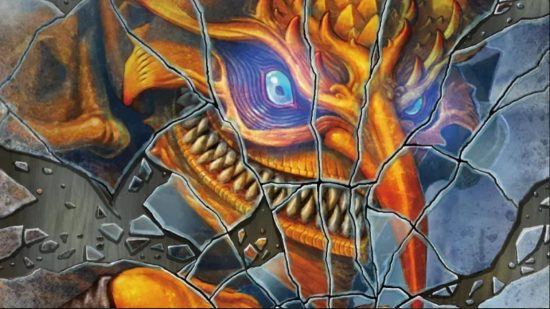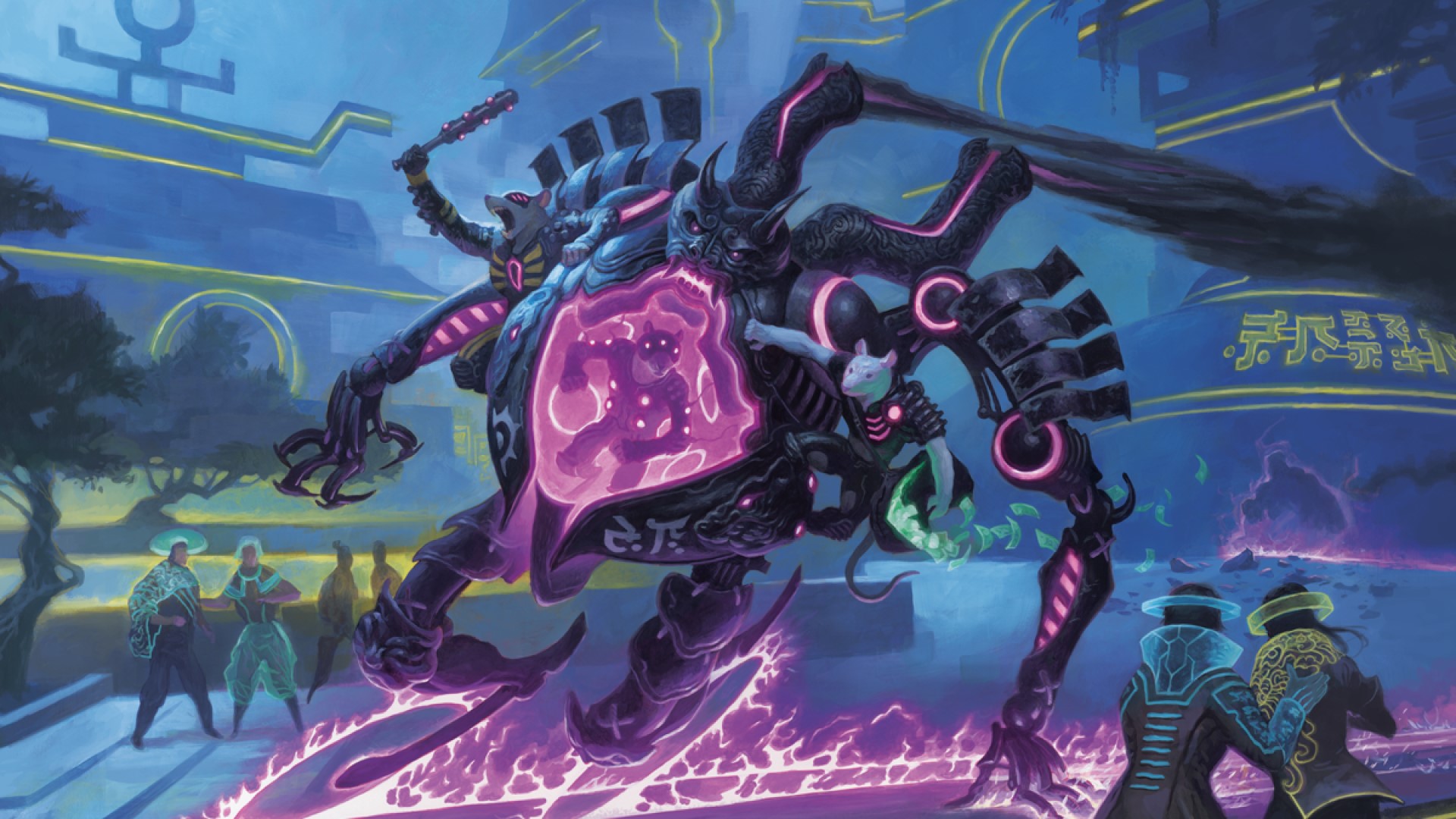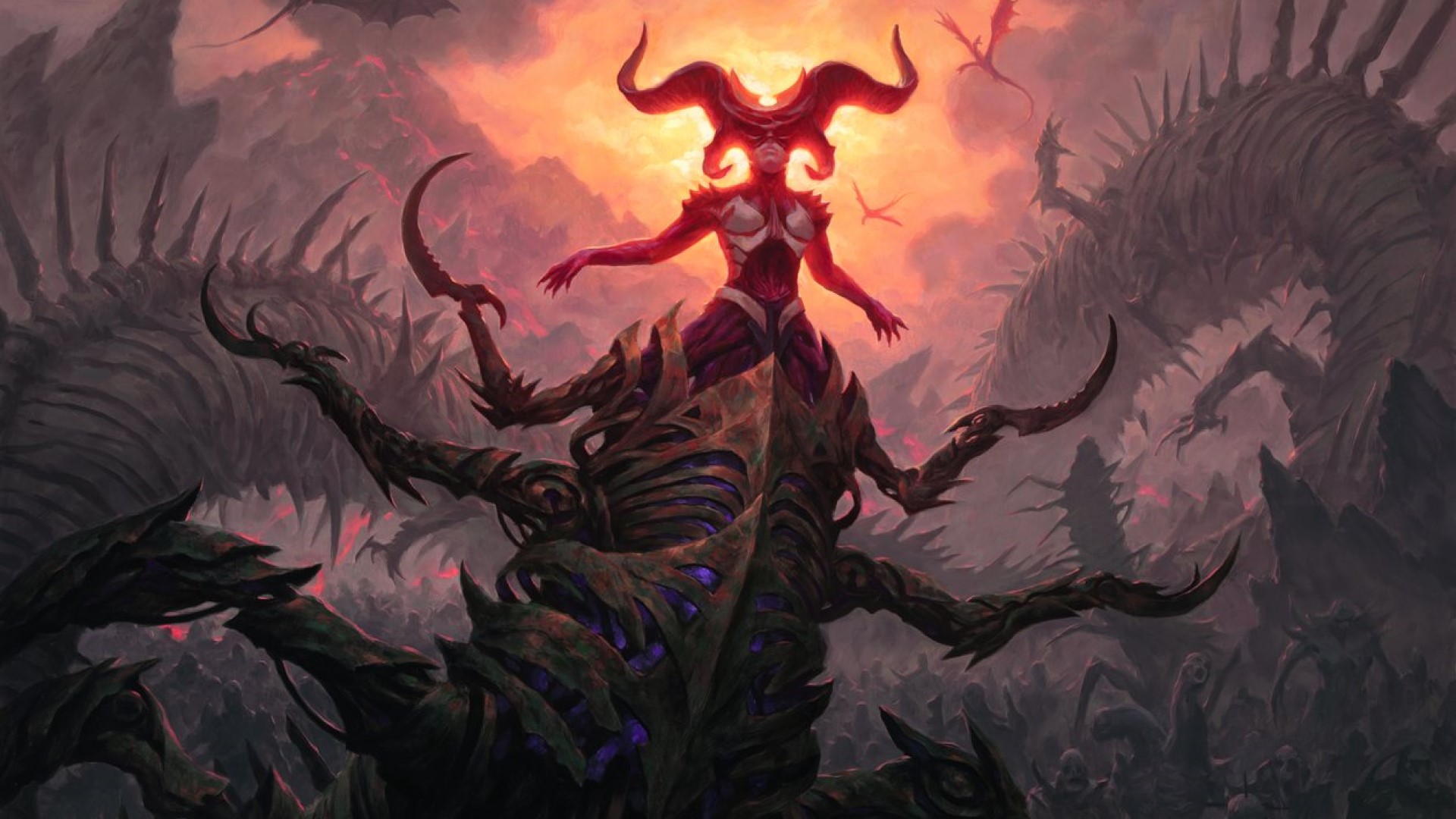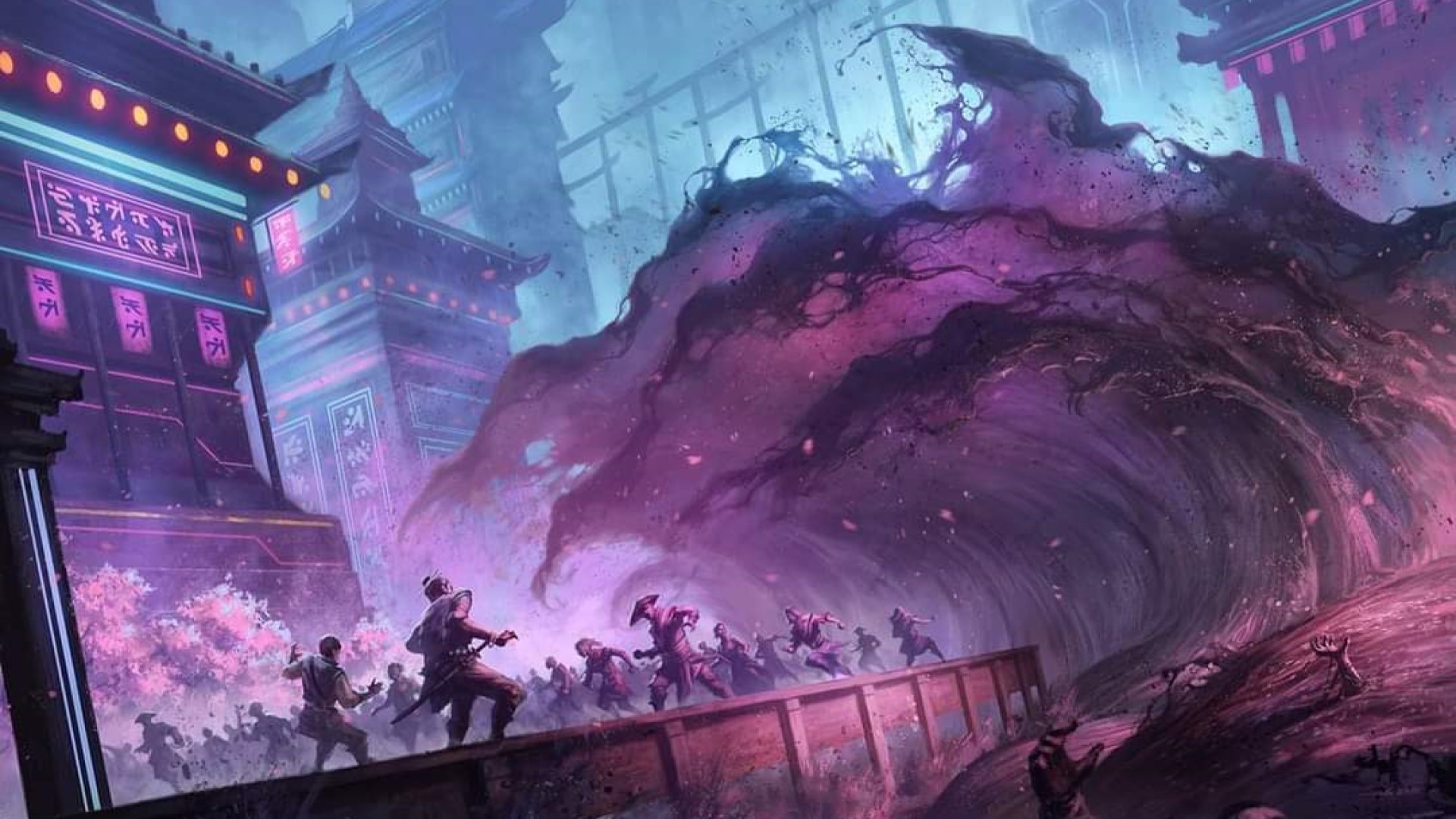Paper Standard has been struggling for a while now – hurt by many things, from the decline of competitive events to MTG Arena. This is the first step in Wizards’ process to trying to fix Standard, but I wonder if it’s a wise one. When looking at the impact of this change, I have to wonder what kind of Standard the game’s designers are trying to build: cheap and varied, or expensive and slow moving?
The most encouraging part of Wizards’ new plan is they say they’ll be able to adjust their approach to set design in the MTG Standard rotation as a result of this change. Specifically, designers will be able to plonk stronger, more interesting archetypes down in one set, because there’ll be more, powerful cards already kicking around in the game to counteract them. It also allows for more interesting synergies. MTG sets are designed years in advance, so with this new structure, Wizards could add a mechanic in one set and then a whole two years later sprinkle in extra support for it.
There’s some exciting stuff here. It seems to allow for some of the benefits of blocks without all their disadvantages, and designing stronger archetypes might help Standard escape the current midrange molasses.
However, the other part of Wizards’ reasoning: giving Standard cards more longevity, opens up a whole can of worms, and the more we examine it, the more unsolvable the problem seems to be.
First of all, the angle conspicuously absent in Wizards of the Coast’s statement is the cost of Standard, and how this is a key factor in its decline. It’s not just that “players want to play with cards they love and enjoy longer.” They don’t want to pay money for expensive paper cards, only for them to become useless two years later – and Arena and Commander means that they don’t have to.
It’s obvious that Wizards’ strategy is attempting to address this, but will one additional year be enough to make paper cards for Standard feel like a good investment? There are two obvious concerns here. The first is that, if the best cards stay dominant in Standard for longer, demand and therefore prices for them may go even higher, making it even more difficult for the average fan to break in. The second is: do players want to keep fighting against the same powerful cards for an entire year longer?
Standard is in a pretty stale place right now – the best MTG Arena decks look much like they did six months ago, and 88% of decks in the pro tour are running the same cards. So naturally a big part of the response to this news was. ‘Oh great, a whole ‘nother year of Sheoldred, Fable of the Mirror Breaker, and Bankbuster’. Unless Wizards is prepared to step up and start banning cards proactively, then Standard is going to become less diverse and less fun. But in the past Wizards has seemed reluctant to be ban-happy, especially with new problematic cards, because the existence of these cards drives pack sales.
Wizards has said the rotation change is only one part of its plan (but it’s meant to be the most significant part) so perhaps a more aggressive attitude to the MTG banlist is also on the cards (I kind of doubt it). That doesn’t seem to gel at all well with its main idea of making the format more ‘stable’, however. It’s also noticeable that this ‘keeping cards relevant’ idea doesn’t gel super well with bringing in full archetypes to try and up diversity. Will this not mean dominant cards suddenly fall out of favour (and in price) when a new set drops? It’s encouraging to see Wizards try to solve the problems of paper Standard, but there are so many conflicting interests that it’s hard to see a clear path.
Realistically, if Wizards of the Coast wants to encourage players to get into Standard, it should probably be trying to plummet the prohibitive cost of cards on the secondary market, rather than trying to make it more viable for fans to exploit it. Then people can actually try out new decks and the format can be more changeable and exciting. This might irk the players who’ve already bought in – but hey, if Standard’s truly dying off, that means there’s never been a time when you’d upset fewer people. I’ll happily see my Sheoldred tank if it helps fix the format.
The trouble is, as much as Wizards claims to ignore the secondary market, it still benefits from it. The alluring promise of expensive chase cards is a heady scent that makes fans buy packs. Unfortunately for Standard, this is a case where Magic: The Gathering’s need to sell cards directly works against the good of the game.
But there’s got to be a way to make this work within the constraints of capitalism. What if Wizards prints special booster packs guaranteed to contain a Sheoldred, a Fable, or some other built-for-Standard chase rare, and prices them reasonably? What if it bans the problem cards and aims to keep the rest below the five dollar mark? Perhaps an influx of new Standard players could make up for the inevitable shortfall when there’s no longer as strong an incentive to play lucky dip with loot boxes. Or perhaps this would just encourage dissent from the EDH and Modern players, who might start to wonder why they’re paying $30 for a small piece of cardboard?
MTG Arena remains the easiest way to play Standard right now – check out our MTG Arena codes guide if you think you might’ve missed out on some of its freebies.



